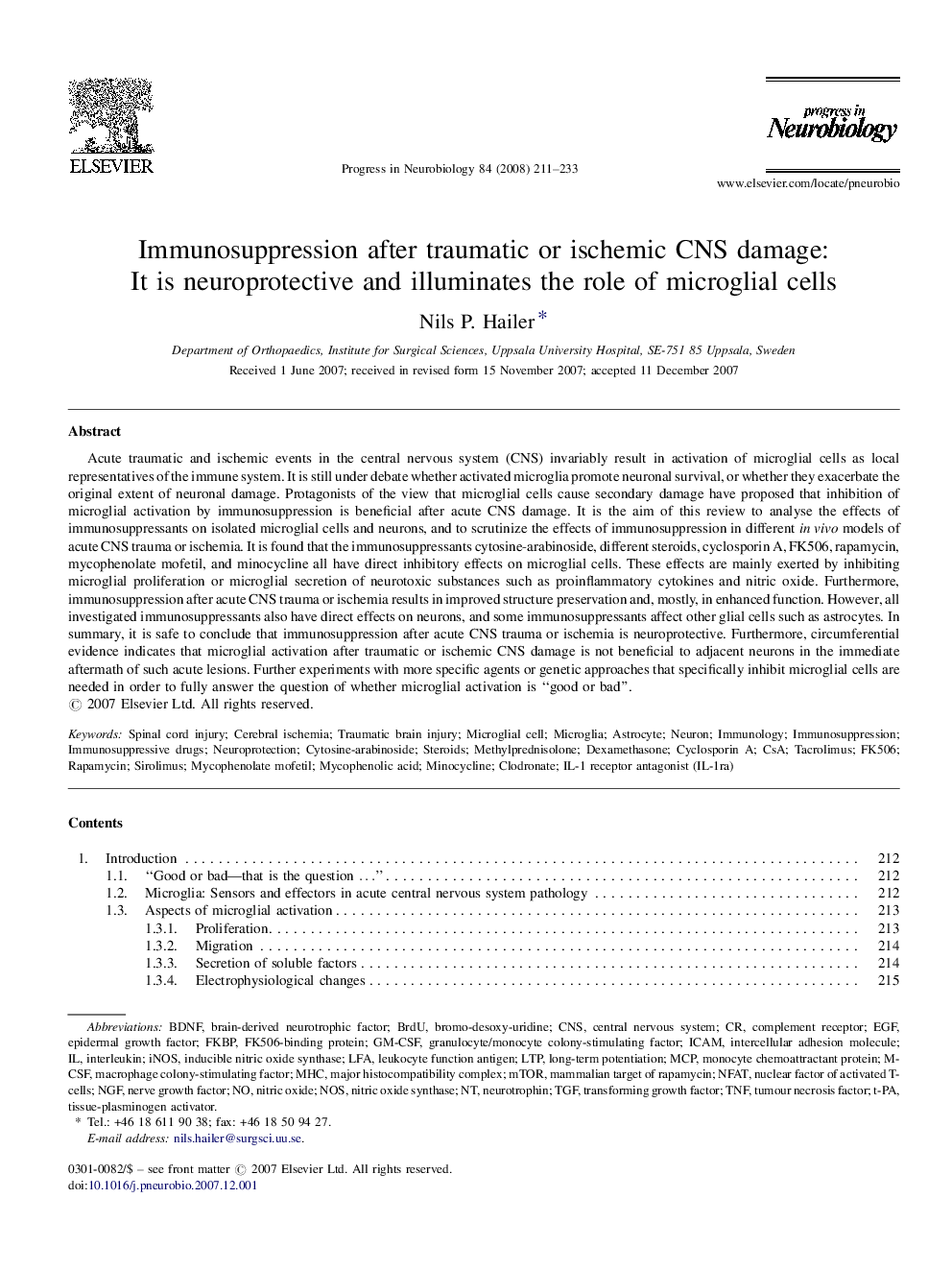| کد مقاله | کد نشریه | سال انتشار | مقاله انگلیسی | نسخه تمام متن |
|---|---|---|---|---|
| 4353922 | 1298521 | 2008 | 23 صفحه PDF | دانلود رایگان |

Acute traumatic and ischemic events in the central nervous system (CNS) invariably result in activation of microglial cells as local representatives of the immune system. It is still under debate whether activated microglia promote neuronal survival, or whether they exacerbate the original extent of neuronal damage. Protagonists of the view that microglial cells cause secondary damage have proposed that inhibition of microglial activation by immunosuppression is beneficial after acute CNS damage. It is the aim of this review to analyse the effects of immunosuppressants on isolated microglial cells and neurons, and to scrutinize the effects of immunosuppression in different in vivo models of acute CNS trauma or ischemia. It is found that the immunosuppressants cytosine-arabinoside, different steroids, cyclosporin A, FK506, rapamycin, mycophenolate mofetil, and minocycline all have direct inhibitory effects on microglial cells. These effects are mainly exerted by inhibiting microglial proliferation or microglial secretion of neurotoxic substances such as proinflammatory cytokines and nitric oxide. Furthermore, immunosuppression after acute CNS trauma or ischemia results in improved structure preservation and, mostly, in enhanced function. However, all investigated immunosuppressants also have direct effects on neurons, and some immunosuppressants affect other glial cells such as astrocytes. In summary, it is safe to conclude that immunosuppression after acute CNS trauma or ischemia is neuroprotective. Furthermore, circumferential evidence indicates that microglial activation after traumatic or ischemic CNS damage is not beneficial to adjacent neurons in the immediate aftermath of such acute lesions. Further experiments with more specific agents or genetic approaches that specifically inhibit microglial cells are needed in order to fully answer the question of whether microglial activation is “good or bad”.
Journal: Progress in Neurobiology - Volume 84, Issue 3, March 2008, Pages 211–233